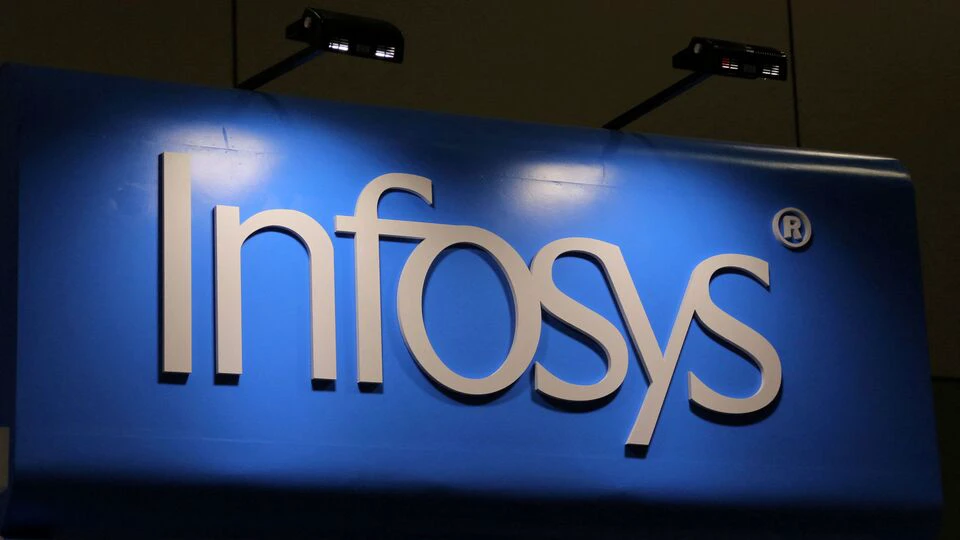Infosys share price: Shares of IT bellwether Infosys jumped over 3% on Wednesday ahead of the opening of the company’s largest-ever share buyback programme.
Infosys shares rallied as much as 3.84% to ₹1,542.80 apiece on the BSE.
The IT services giant said its share buyback programme worth ₹18,000 crore will open for subscription on Thursday, November 20, and will close on November 26. Infosys share buyback record date was November 14.
Here are key details of Infosys’ share buyback:
Infosys Buyback Details
Infosys plans to repurchase 10 crore fully paid-up equity shares of a face value of ₹5 each, representing up to 2.41% of the total paid-up equity share capital. Infosys buyback price is set at ₹1,800 per share.
Infosys buyback is divided into two categories: reserved (small shareholders) and the general category. The reservation for small shareholders will be 15% of the number of equity shares that the company proposes to buy back, or their entitlement, whichever is higher.
A small shareholder is someone who holds equity shares having a market value of not more than ₹2,00,000, as on the record date. Infosys has 25,85,684 small shareholders.
Hence, investors who held Infosys shares as of November 14 are eligible to tender shares on the share buyback programme.
Infosys promoters and promoter group, including Nandan M Nilekani and Sudha Murty, have decided not to participate in the buyback programme. The promoters collectively held a13.05% stake in the IT major on the buyback announcement date.
Infosys Buyback Entitlement Ratio
The ratio of share buyback from the reserved category is 2:11, meaning that for every 11 shares a shareholder holds, they are eligible to sell 2 shares back to the company under the buyback. For the general category, Infosys’ share buyback ratio is 17:706.
Entitlement is the number of equity shares that an eligible shareholder is entitled to tender in the buyback against the number of equity shares held by them on the record date.
Meanwhile, the buyback entitlement ratio shows how many shares held by the shareholders will be accepted by the company for buyback, relative to the number of shares they hold.
Should you tender shares in Infosys buyback?
Infosys share buyback worth ₹18,000 crore via the tender route at ₹1,800 per share reflects strong capital return discipline and management confidence in medium-term cash flows, as per experts.
According to Prashanth Tapse, Senior VP (Research), Mehta Equities Ltd, Infosys buyback is an attractive opportunity for retail investors to tender shares as the buyback price of ₹1,800 is at a premium of around 17%.
However, he believes that taxation is a major drag in this case if investors are in the higher tax slabs.
“The entire buyback amount is taxable; the tax payable could substantially reduce net gains, especially for investors in higher tax brackets, as Infosys will deduct tax at source when paying out the buyback consideration. So net proceeds will already be lower than ₹1,800 × accepted shares. This buyback would be only attractive if investors fall in a lower income slab. Long-term conservative investors need not worry about holding. While short-term investors can calculate the tax and participate in the tender,” Tapse said.
Infosys buyback price carries 18% – 20% premium to pre-announcement levels, which is meaningful in a low-growth IT environment. Since promoters are not participating, the acceptance ratio for public shareholders, particularly retail, should be relatively high, improving the effective realised upside.
“A critical factor is Infosys’ balance sheet strength. The company is funding the buyback entirely through internal cash and reserves, underscoring its strong free cash flow generation. Importantly, Infosys’ FY25 capital allocation framework commits to returning ~85% of cumulative free cash flows over five years via dividends and buybacks. This signals disciplined capital management and a consistent intent to return surplus funds to shareholders, supporting long-term value creation even in a low-growth environment,” said Abhinav Tiwari, Research Analyst at Bonanza.
However, the key consideration post-Budget 2024 is taxation. Buybacks are now taxed as “deemed dividend”, meaning the payout is fully taxable at the shareholder’s slab rate.
“For investors in the 30%+ surcharge bracket, the net benefit from the premium sharply reduces, often making a market sale near the buyback price more efficient. For lower tax bracket investors, the tender route still delivers clear incremental value,” Tiwari said.
From a fundamental standpoint, he believes Infosys is in a transition phase, deal wins and revenue visibility remain healthy but not high growth, margins have stabilised but are not expanding meaningfully, and sectoral demand remains cyclical.
“The buyback partially offsets slower EPS growth by reducing share count and improving ROE, which is supportive for long-term holders who do not tender,” said Tiwari.
Infosys Buyback History
Infosys had announced its first share buyback programme in 2017, when the IT major had purchased 11.3 crore shares, or up to 4.92% of its paid-up equity share capital, for ₹1,150 per equity share, amounting to around ₹13,000 crore.
In 2019, Infosys’ share buyback worth ₹8,260 crore was the second in the company’s history, and the third was in 2021 of ₹9,200 crore.
In 2022, Infosys announced a share buyback of ₹9,300 crore via an open market route for a maximum price of ₹1,850 per equity share.
At 12:45 PM, Infosys share price was trading 3.46% higher at ₹1,537.00 apiece on the BSE.
